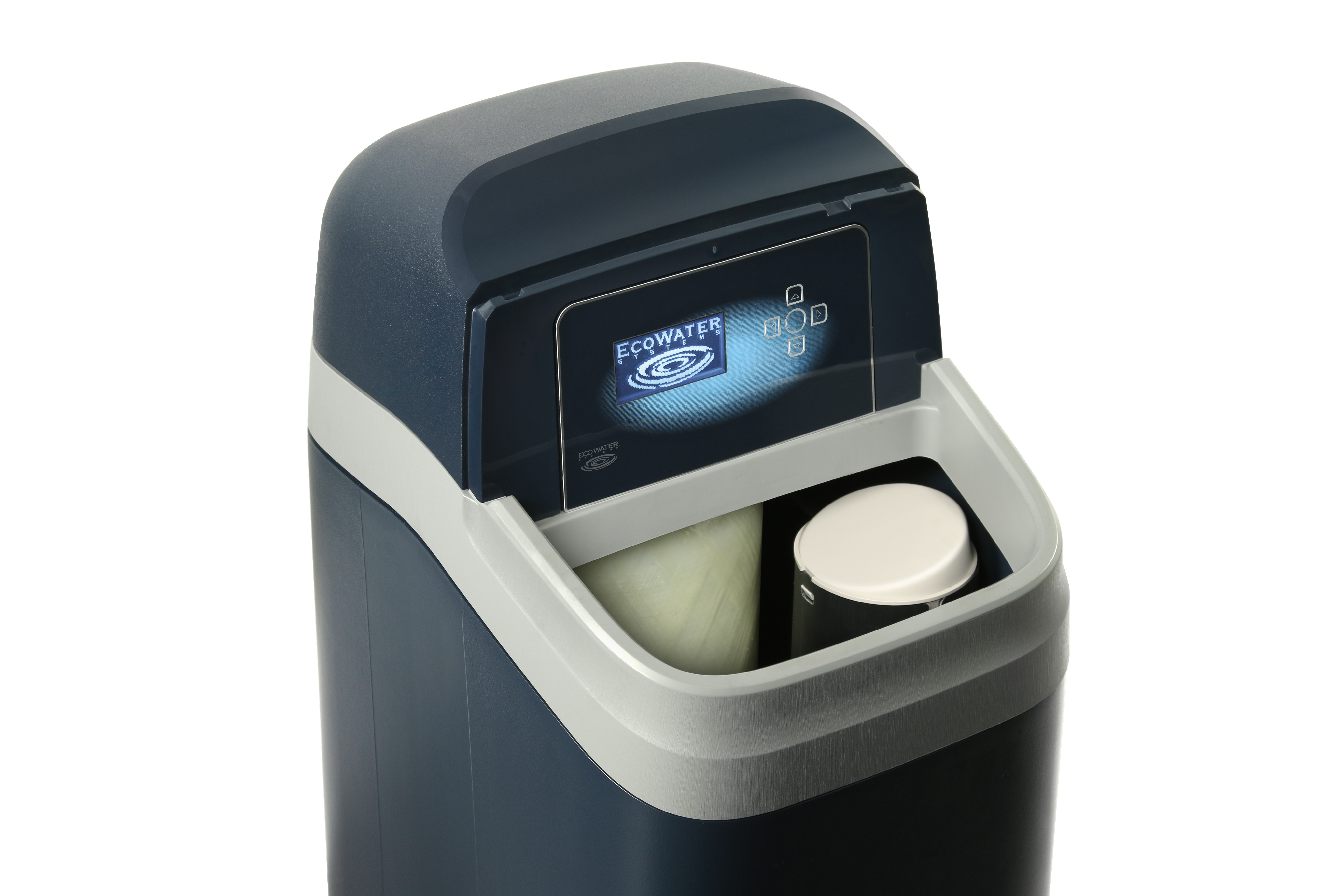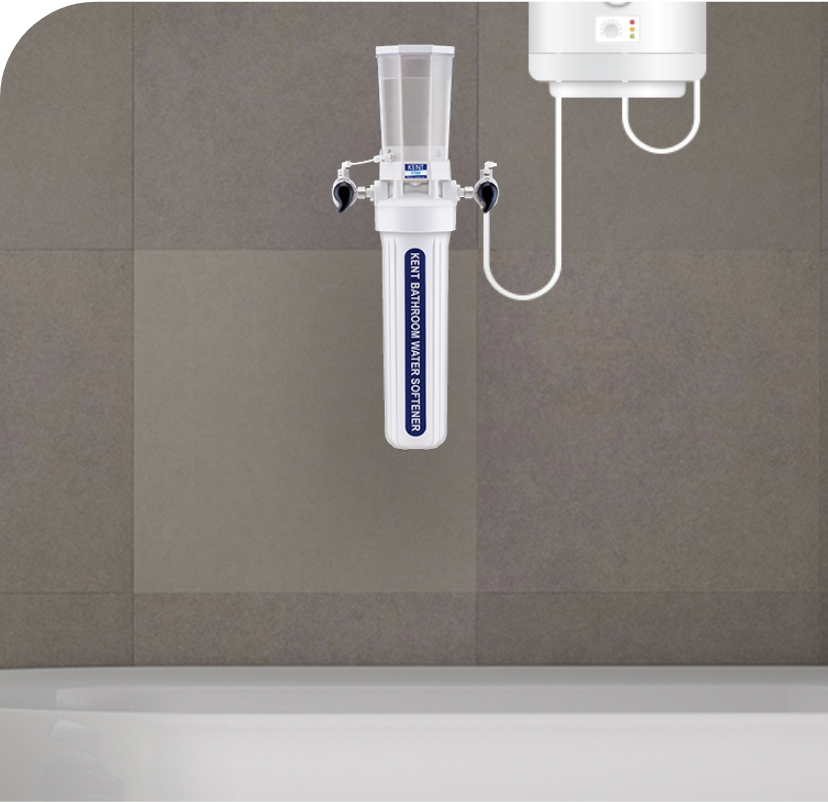Understanding the Need for a Small Water Softener in a Bathroom: Small Water Softener For Bathroom Only

Hard water is a common problem in many homes, and bathrooms are particularly susceptible to its effects. Hard water contains high levels of minerals, such as calcium and magnesium, which can cause various issues in your bathroom. Installing a small water softener specifically for your bathroom can offer numerous benefits and enhance your overall bathroom experience.
The Effects of Hard Water in Bathrooms
Hard water can have a significant impact on your bathroom fixtures, appliances, and personal hygiene.
- Fixtures: Hard water leaves behind mineral deposits that can build up on showerheads, faucets, and other fixtures, leading to clogging, reduced water pressure, and unsightly stains.
- Appliances: Hard water can damage appliances like washing machines, dishwashers, and water heaters, leading to reduced efficiency and increased energy consumption. Mineral deposits can also shorten the lifespan of these appliances.
- Personal Hygiene: Hard water can make your skin feel dry and itchy, and your hair can become dull and difficult to manage. It can also leave soap scum on your skin and hair, making it difficult to rinse off completely.
Benefits of Using a Small Water Softener in the Bathroom, Small water softener for bathroom only
A small water softener specifically for your bathroom can address these hard water issues and provide several benefits:
- Improved Water Quality: A water softener removes minerals that cause hardness, resulting in softer, cleaner water. This leads to a more enjoyable shower experience, as the water feels smoother and less harsh on your skin and hair.
- Reduced Soap Scum and Mineral Deposits: Softened water prevents the buildup of soap scum and mineral deposits on bathroom fixtures, keeping them clean and free of unsightly stains. This reduces the need for frequent cleaning and helps extend the lifespan of your fixtures.
- Enhanced Appliance Performance: Softened water improves the performance of bathroom appliances like washing machines and water heaters. It reduces mineral buildup, preventing damage and extending the lifespan of these appliances. This can lead to lower energy consumption and reduced maintenance costs.
- Improved Skin and Hair Health: Softened water is gentler on your skin and hair, reducing dryness, itchiness, and other hard water-related issues. This leads to softer, healthier skin and hair, enhancing your overall hygiene and well-being.
Examples of How a Small Water Softener Improves Bathroom Experience
Here are some real-life examples of how a small water softener can improve your bathroom experience:
- Showering: You’ll notice a significant difference in your showering experience with softened water. The water will feel smoother and more luxurious, leaving your skin and hair feeling softer and cleaner. You’ll also notice a reduction in soap scum buildup on your shower walls and showerhead, making cleaning easier.
- Washing Clothes: Softened water helps your washing machine operate more efficiently, preventing mineral buildup and extending its lifespan. Your clothes will also feel softer and cleaner, as softened water helps remove soap residue and prevents mineral stains.
- Maintaining Bathroom Fixtures: You’ll spend less time cleaning your bathroom fixtures, as softened water prevents the buildup of soap scum and mineral deposits. This allows you to enjoy a cleaner and more hygienic bathroom with less effort.
Types of Small Water Softeners for Bathroom Use

Small water softener for bathroom only – When choosing a small water softener for your bathroom, you’ll encounter various types, each with its own advantages and drawbacks. Understanding these differences is crucial to selecting the best option for your specific needs and budget.
Salt-Based Water Softeners
Salt-based water softeners are the most common type and utilize a process called ion exchange. They employ a resin bed containing sodium ions, which attract and replace the calcium and magnesium ions in hard water, effectively softening it.
- Working Principle: Hard water flows through the resin bed, where calcium and magnesium ions bind to the resin, releasing sodium ions into the water. This process continues until the resin bed is saturated with hard water minerals.
- Regeneration: When the resin bed is saturated, it needs regeneration using a brine solution. This solution is created by dissolving salt (sodium chloride) in water, which is then passed through the resin bed, displacing the hard water minerals and restoring the resin’s softening capacity.
- Types:
- Single-Tank: This is the most basic type, with a single tank for both softening and regeneration. It’s usually smaller and less expensive, suitable for small bathrooms or single-person households.
- Twin-Tank: These softeners have two tanks, one for softening and another for regeneration. They offer continuous softening, as one tank is always available while the other regenerates.
Pros
- Effective: Salt-based softeners are highly effective at removing hard water minerals, leading to noticeable improvements in water quality.
- Cost-Effective: They are generally affordable to purchase and operate, especially when considering their long-term benefits.
- Wide Availability: Salt-based softeners are readily available from various manufacturers and retailers.
Cons
- Salt Consumption: They require regular salt refills, which can be a recurring expense.
- Installation: Installation may require plumbing expertise and can be more complex than other types.
- Maintenance: Regular maintenance is needed, including checking salt levels, cleaning the brine tank, and potentially replacing the resin bed.
- Sodium Content: Softened water contains higher sodium levels, which may be a concern for individuals on a low-sodium diet.
Non-Salt Water Softeners
Non-salt water softeners offer an alternative to traditional salt-based systems, employing different technologies to reduce hard water minerals without using salt.
- Electromagnetic Water Softeners: These softeners use magnetic fields to alter the structure of hard water minerals, preventing them from forming scale and deposits.
- Electronic Water Softeners: These softeners use electronic pulses to disrupt the formation of hard water minerals, preventing them from binding to surfaces.
- Template-Assisted Crystallization (TAC) Softeners: These softeners use a filter media that attracts and traps hard water minerals, preventing them from entering the water supply.
Pros
- Salt-Free: They don’t require salt for regeneration, making them environmentally friendly and suitable for individuals with dietary restrictions.
- Easy Installation: They are typically easier to install than salt-based softeners, often requiring minimal plumbing modifications.
- Low Maintenance: They generally require less maintenance than salt-based softeners, often only needing occasional filter replacements.
Cons
- Less Effective: Non-salt softeners are often less effective at removing hard water minerals than salt-based softeners, especially for severe hardness levels.
- Higher Cost: They are generally more expensive to purchase than salt-based softeners, although their operating costs may be lower.
- Limited Availability: They may be less readily available than salt-based softeners, depending on your location.
Point-of-Use Water Softeners
Point-of-use water softeners are designed to treat water at the point of use, such as a bathroom sink or showerhead. They offer localized softening without affecting the entire water supply.
- Showerhead Filters: These filters attach to your showerhead and contain a filter media that removes hard water minerals from the water flowing through them.
- Faucet Filters: Similar to showerhead filters, these filters attach to your bathroom faucet and provide softened water for handwashing, brushing teeth, etc.
- Under-Sink Filters: These filters install under your sink and provide softened water to multiple faucets or appliances in the bathroom.
Pros
- Targeted Softening: They only treat water at the specific point of use, reducing the overall water softening needs and costs.
- Easy Installation: They are typically easy to install, often requiring minimal plumbing modifications.
- Compact Size: They are small and compact, making them ideal for limited spaces.
Cons
- Limited Capacity: They have a limited capacity and may need frequent filter replacements, depending on water hardness and usage.
- Less Effective: They may not be as effective as whole-house softeners in reducing hard water minerals, especially for severe hardness levels.
- Higher Cost Per Gallon: The cost per gallon of softened water may be higher than whole-house softeners, especially if filter replacements are frequent.
Comparison Table
| Type | Effectiveness | Installation | Maintenance | Cost |
|---|---|---|---|---|
| Salt-Based | High | Moderate to High | Moderate | Low to Moderate |
| Non-Salt | Moderate | Low to Moderate | Low | Moderate to High |
| Point-of-Use | Low to Moderate | Low | Low to Moderate | Moderate to High |
A small water softener dedicated to your bathroom can significantly reduce hard water buildup, making cleaning a breeze. With less mineral deposits, you’ll find it easier to keep your bathroom sparkling clean, and a good best mop to clean bathroom floor will make the task even quicker.
A water softener will also leave your bathroom fixtures looking their best, extending their lifespan and giving you a more luxurious bathroom experience.
A small water softener for your bathroom can be a great investment, especially if you have hard water. It can help to prevent mineral buildup on your fixtures and appliances, and it can also make your skin and hair feel softer.
If you have an outdoor pool, you might want to consider installing a larger water softener to treat the water for the pool as well. A small outdoor pool bathroom can be a luxurious addition to your home, and a water softener can help to keep the water in your pool clean and clear.
But even if you don’t have a pool, a small water softener can make a big difference in the quality of your bathroom water.